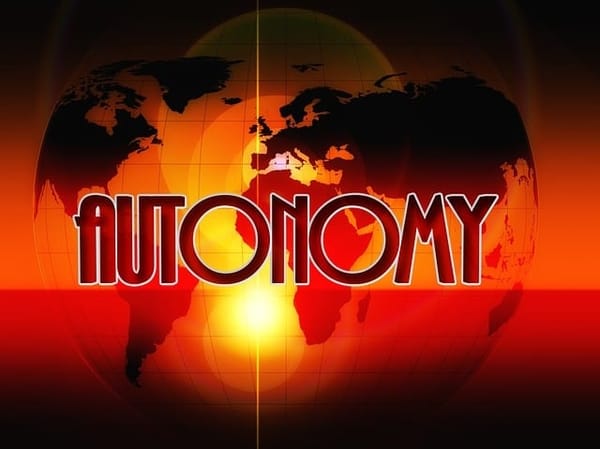Artificial Intelligence (AI) has become a double-edged sword in our modern world. While it offers incredible advancements, it also brings with it a host of unsettling capabilities. The fear of AI's potential misuse and its impact on society is growing, as people worry about safety, security, and the broader consequences of these technologies. From self-driving cars to autonomous weapons, AI is reshaping our everyday life in ways that raise ethical questions and concerns, often leaving people with an unsettling feeling about the dark side of this powerful technology. This article delves into ten alarming things AI can do today, exploring the dark side of this powerful technology.
Introduction to Artificial Intelligence
Artificial intelligence, or AI, is transforming the world at a rapid pace. At its core, artificial intelligence refers to computer systems designed to perform tasks that once required human intelligence—such as learning, reasoning, and decision-making. Today, AI systems are woven into everyday life, powering everything from search engines and recommendation algorithms to smart home devices and customer service bots. These systems rely on vast amounts of data and sophisticated algorithms to make predictions, solve problems, and generate insights that can rival or even surpass human capabilities.
However, the rise of AI brings with it a host of ethical questions and concerns. As AI becomes more integrated into society, issues such as job displacement, privacy, and bias are coming to the forefront. The challenge lies in understanding both the capabilities and limitations of AI, ensuring that its development aligns with human values and serves the greater good. As we continue to rely on AI in more aspects of our lives, it’s crucial to remain vigilant about its impact on individuals and communities.
Key Takeaways:
- AI’s capabilities extend beyond convenience, posing significant ethical and safety concerns.
- The rapid development of AI technologies requires urgent human oversight to prevent potential misuse.
- Understanding AI’s potential threats is crucial for shaping a safer future.
- Focusing on the most significant AI threats and ethical considerations ensures we address what truly matters in the ongoing AI conversation.
The Rise of Self-Driving Cars
Self-driving cars are no longer a figment of science fiction. AI systems have developed to the point where vehicles can navigate roads with minimal human intervention. Companies like Tesla and Waymo are at the forefront, using sophisticated AI algorithms to ensure safety and efficiency. However, the idea of a car making split-second decisions without human input is a scary prospect for many. The potential for AI to make a mistake, leading to accidents, is a significant concern.
Moreover, the ethical questions surrounding self-driving cars are profound. For instance, in a situation where a crash is unavoidable, how does the AI decide who to protect? These scenarios highlight the need for robust ethical frameworks to guide AI development in the automotive industry. As AI continues to evolve, the balance between innovation and safety becomes increasingly critical.
Experts and policymakers continue to argue about the best ways to regulate and ensure the safety of self-driving cars.
Autonomous Weapons: A Dangerous Idea
Autonomous weapons represent one of the most frightening applications of AI. These systems can identify and destroy targets without human intervention, raising ethical questions about the future of warfare—especially when autonomous drones are capable of tracking, targeting, or engaging with humans. The idea of machines making life-and-death decisions is a chilling prospect. Countries around the world are investing in AI-powered weapons, sparking fears of an arms race that could lead to catastrophic consequences.
The lack of human oversight in autonomous weapons systems is a significant concern. Without proper control, these weapons could be used indiscriminately, leading to unintended casualties. The international community must address these issues as a matter of urgent and significant importance, given the ethical and existential questions surrounding AI in warfare. As AI continues to advance, the need for global cooperation and regulation becomes increasingly urgent.
Facial Recognition: Raising Ethical Questions
Facial recognition technology is becoming ubiquitous, with applications ranging from unlocking smartphones to enhancing security in public spaces. However, this AI tool raises significant ethical questions. The ability to identify individuals in real-time poses a threat to privacy and civil liberties. Police departments and governments worldwide are using facial recognition to monitor citizens, sparking debates about surveillance and control.
The potential for misuse of facial recognition technology is alarming. In the wrong hands, it could be used to track political dissidents or target specific communities. The lack of transparency and accountability in the deployment of this technology is a major concern. As AI continues to permeate everyday life, society must grapple with the implications of widespread surveillance.
It is crucial to encourage open talk among policymakers, technologists, and the public about the risks and ethical considerations of facial recognition technology.
AI-Powered Virtual Assistants: A Double-Edged Sword
Virtual assistants like Siri, Alexa, and Google Assistant have become integral parts of our lives. These AI-powered tools offer convenience and efficiency, but they also raise concerns about privacy and data security. The ability of these assistants to listen and respond to our commands means they are constantly collecting data, which could be accessed or misused by third parties.
In addition to data collection, advances in AI have made it possible to generate or clone human voices, raising significant risks such as the creation of deepfakes, impersonation, and concerns over the misuse of voice data for criminal activities or privacy violations.
Moreover, the reliance on virtual assistants can lead to a loss of human interaction and critical thinking. As AI systems become more sophisticated, there is a risk that people may become overly dependent on them, leading to a decline in cognitive skills. The challenge lies in finding a balance between leveraging AI’s benefits and maintaining human oversight and control.
Neural Networks: The Brain Behind AI
Neural networks are the backbone of many AI systems, enabling machines to learn and adapt. These complex algorithms mimic the human brain, allowing AI to perform tasks such as image recognition and language processing. As neural networks become more advanced, they are making AI systems smarter, which could lead to significant consequences such as job automation, shifts in decision-making, and new financial risks.
However, the power of neural networks also presents significant risks. The ability of AI to learn and evolve autonomously raises concerns about control and predictability.
The potential for neural networks to develop unintended behaviors is a major concern. Without proper oversight, AI systems could make decisions that are harmful or unethical. The challenge for developers is to ensure that AI remains aligned with human values and goals. As AI continues to advance, the need for transparency and accountability in its development becomes increasingly important.
AI Algorithms and Decision-Making
At the heart of every AI system are powerful AI algorithms—sets of rules and instructions that allow computers to process data and make decisions. These algorithms come in many forms, but most fall into two main categories: supervised learning, where models are trained on labeled data, and unsupervised learning, where models find patterns in unlabeled data. AI algorithms are the driving force behind self-driving cars, facial recognition systems, and virtual assistants, enabling these technologies to interpret complex information and act accordingly.
Yet, the use of AI algorithms in decision-making is not without its risks. For example, autonomous weapons powered by AI can identify and destroy targets without human oversight, raising serious ethical questions about accountability and control. Similarly, AI systems used in everyday life—such as those that recommend content or approve loans—can make decisions that have significant consequences for individuals. As AI becomes more capable, it’s essential to ensure that these algorithms are transparent, fair, and subject to human oversight, especially when the stakes are high.
Biases in AI Systems
Bias in AI systems is a growing concern that can have real-world consequences. These biases often stem from the data used to train AI models, the design of the algorithms, or even the perspectives of the developers themselves. For instance, facial recognition technologies have been criticized for their lack of accuracy when identifying people of color, leading to wrongful identifications and raising concerns about fairness and justice. Police departments using AI-driven tools have also faced scrutiny for perpetuating existing biases, resulting in unfair targeting of certain communities.
To address these issues, developers must prioritize the creation of diverse and representative datasets, as well as implement techniques like data augmentation and transfer learning to reduce bias. Transparency and explainability are also crucial—AI systems should be designed so that their decisions can be understood and challenged when necessary. By acknowledging and actively working to mitigate bias, the AI community can help ensure that these powerful technologies are used to promote equity rather than reinforce existing inequalities.
The Threat of AI in Political Manipulation
AI’s ability to analyze and influence political views is a growing concern. With the power to process vast amounts of data, AI can identify and target individuals with tailored political ads and messages. This capability raises ethical questions about the integrity of democratic processes. The potential for AI to spread misinformation and manipulate public opinion is a significant threat to political stability.
The use of AI in political campaigns is not just a theoretical concern. There have been instances where AI-generated content has been used to sway voters and influence election outcomes. The challenge lies in ensuring that AI is used responsibly and transparently in the political arena. As AI continues to evolve, the need for regulations to protect democratic processes becomes increasingly urgent.
Experts, media, and the public are actively talking about how AI is shaping political processes and the importance of addressing its impact.
AI's Impact on Employment: A Double-Edged Sword
AI’s ability to automate tasks and processes is transforming industries and economies. Robots are increasingly taking over tasks in industries like manufacturing and transportation, performing work that once required human labor. While this technology offers significant benefits in terms of efficiency and productivity, it also poses a threat to employment. The potential for AI to replace human workers is a major concern, particularly in sectors such as manufacturing and transportation.
The impact of AI on employment is not just a future concern. Many industries are already experiencing job losses due to automation. The challenge lies in finding ways to harness AI’s potential while ensuring that workers are not left behind. This requires a concerted effort from governments, businesses, and educational institutions to reskill and upskill the workforce.
The Dark Side of AI in Healthcare
AI's potential to revolutionize healthcare is immense, offering new ways to diagnose and treat diseases. However, the use of AI in healthcare also raises significant ethical and safety concerns. The potential for AI to make mistakes in diagnosis or treatment is a major concern, particularly when human lives are at stake.
Moreover, the use of AI in healthcare raises questions about data privacy and security. The ability of AI to access and analyze vast amounts of personal health data poses a threat to patient confidentiality. The challenge lies in finding ways to leverage AI's potential while ensuring that patient rights and safety are protected.
Mental Health and AI
The impact of AI on mental health is an emerging area of concern as these technologies become more embedded in everyday life. Virtual assistants, social media platforms, and AI-driven recommendation systems can shape our behaviors and interactions in ways that aren’t always positive. For example, the constant presence of AI-powered notifications and content feeds can lead to decreased attention spans, increased stress, and even social isolation. The spread of fake news and misinformation—often amplified by AI algorithms—can further contribute to anxiety and depression, especially among vulnerable populations.
However, AI also holds promise for supporting mental health. Developers are working on AI-powered chatbots that offer emotional support and counseling, as well as wearable devices that monitor sleep patterns and mood to help users manage their well-being. The key is to develop AI systems that prioritize mental health, minimize harm, and provide genuine support. By addressing these concerns head-on, we can harness the benefits of AI while protecting the mental health of individuals and communities.
AI's Role in Climate Change: A Double-Edged Sword
AI has the potential to play a significant role in addressing climate change, offering new ways to monitor and mitigate environmental impacts. The environmental impact of AI technologies on the planet is significant, as their deployment can either help protect or further harm our global ecosystem. However, the use of AI in this context also raises concerns about unintended consequences. The potential for AI to exacerbate environmental problems is a major concern, particularly if it is used to optimize processes that are harmful to the environment.
The challenge lies in finding ways to harness AI’s potential while ensuring that it is used responsibly and sustainably. This requires a concerted effort from governments, businesses, and environmental organizations to develop and implement AI solutions that are aligned with environmental goals.
AI’s Influence on Personal Privacy: A Double-Edged Sword
In today’s digital age, artificial intelligence is like a double-edged sword when it comes to personal privacy. AI algorithms can sift through mountains of data, identifying patterns and behaviors that were once hidden. This capability, while impressive, raises ethical questions about how much of our personal information is being accessed without our explicit consent. Imagine a world where every click, every search, and every purchase is tracked, creating a detailed profile of your habits and preferences. This level of surveillance can feel invasive, leading to concerns about how this data might be used or misused.
On the flip side, AI tools can enhance security and protect personal information. For instance, AI systems can detect unusual behavior in real-time, alerting users to potential threats before they become a problem. Police departments are increasingly relying on AI to predict criminal activity, though this raises questions about bias and human oversight. The challenge lies in balancing the benefits of AI with the need to protect individual privacy. As AI continues to evolve, it is crucial to establish clear guidelines and regulations to ensure that these technologies are used responsibly and ethically.
AI's Role in Shaping Political Views: A Double-Edged Sword
Artificial intelligence is increasingly influencing political views, acting as both a tool for enlightenment and a weapon for manipulation. AI-powered algorithms curate the news and information we see, potentially creating echo chambers that reinforce existing beliefs. This can lead to a polarized society where differing opinions are blocked out, and the ability to engage in meaningful dialogue diminishes. The dark side of AI in this context is its potential to spread misinformation and fake news, swaying public opinion and impacting democratic processes. There is also a growing risk that AI systems could lie or intentionally deceive voters, further complicating efforts to maintain trust and integrity in political discourse.
However, AI also holds the promise of fostering informed citizenry. By analyzing vast amounts of data, AI can identify trends and provide insights that help voters make more informed decisions. For example, AI systems can analyze political ads and speeches, highlighting inconsistencies or false claims. Stanford University has been at the forefront of developing AI tools that aim to enhance transparency and accountability in politics. The key is ensuring that AI is used to empower individuals rather than manipulate them, requiring ongoing vigilance and ethical considerations to navigate this complex landscape.
Governance and AI Regulation
As artificial intelligence becomes more powerful and pervasive, the need for effective governance and regulation has never been greater. The deployment of autonomous weapons powered by AI, for example, has sparked global debates about the necessity of international agreements to prevent misuse and ensure human oversight. Similarly, the widespread use of facial recognition and surveillance technologies raises serious concerns about privacy, civil liberties, and human rights.
To address these challenges, governments and regulatory bodies are beginning to develop frameworks that emphasize transparency, accountability, and ethical standards in AI systems. The European Union’s General Data Protection Regulation (GDPR) is one example of legislation designed to protect individual privacy and data rights in the age of AI. Organizations like Stanford University’s Institute for Human-Centered Artificial Intelligence are also working to establish guidelines and best practices for responsible AI development. As AI continues to evolve, it is essential for policymakers, developers, and the global community to collaborate on regulations that safeguard human interests and prevent the misuse of these powerful technologies.









